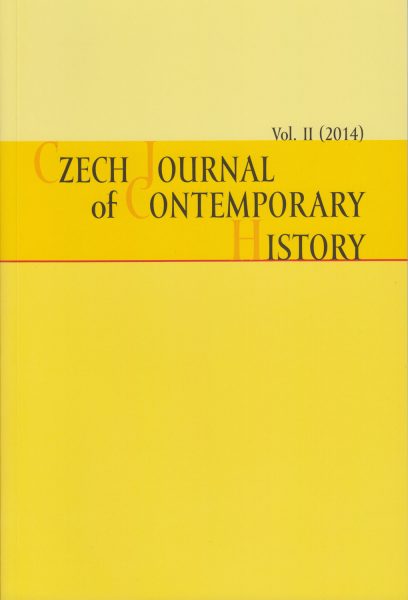Chronicler of Communist Czechoslovakia (Karel Kaplan and the Study of Contemporary History)
Chronicler of Communist Czechoslovakia (Karel Kaplan and the Study of Contemporary History)
Author(s): Vítězslav SommerSubject(s): Source Material
Published by: AV ČR - Akademie věd České republiky - Ústav pro soudobé dějiny
Keywords: Chronicler of Communist Czechoslovakia; 1950's; Karel Kaplan;
Summary/Abstract: The author attempts to pinpoint the place of the historian Karel Kaplan (b. 1928)in the context of Czech historiography of the last half century, to show the changes in the basic tendencies characterizing his work, and to consider his role in the formation of the field of contemporary history in the Czech Republic. Kaplan is perhaps the most prolific and most translated Czech historian living today. His career is emblematic of the path taken by Czech research on contemporary history and its writing. As a historian he began to publish in the 1950's when he worked in the apparat of the Czechoslovak Communist Party. At that time he devoted himself to regional topics with a tendency to be a Party propagandist, offering interpretations that conformed to the times. His earlier works, however, share the same respect for the sources as his later works do. In the 1960's, Kaplan found himself at the forefront of reform in Czechoslovak historiography. He exposed and criticized the preparation of the show trials of the previous decade (partly because he was on “rehabilitation commissions” set up by the Communist regime), and he saw his work on history as a way to redress failed policy. Kaplan defected to West Germany in 1976, and in numerous publications he then acquainted readers in the West with the operation of the Communist regime and political repression in Czechoslovakia. He used as his sources many unique archival records, which he had managed to get out of the country, and he completely abandoned his political ambitions, tending instead to be utterly empirical in his work. Back in Czechoslovakia and then the Czech Republic since 1990, he has developed his empirical, fact-based, approach, seeking objectivity, in a number of other, often very large, works systematically charting out the history of Czechoslovakia from 1945 to the early 1970s. The focus of Kaplan’s research has, however, shifted in recent years from analysis of the regime to analysis of society.In the conclusion of his article, the author discusses the weaknesses and strengths of Kaplan’s works and methods. Considering the changes that the historical sciences have gone through in recent times, he considers problematic Kaplan’s clinging to the objectivity of historical knowledge, his positivistic interpretation of archive records without a real interpretational framework, and his dry, matter-of-fact style of writing. On the other hand, his contribution to our knowledge of the history of Communist Czechoslovakia is pioneering and absolutely fundamental. No historian in the field can get by without the results of Kaplan’s research.
Journal: Czech Journal of Contemporary History
- Issue Year: II/2014
- Issue No: 2
- Page Range: 137-152
- Page Count: 16
- Language: English

